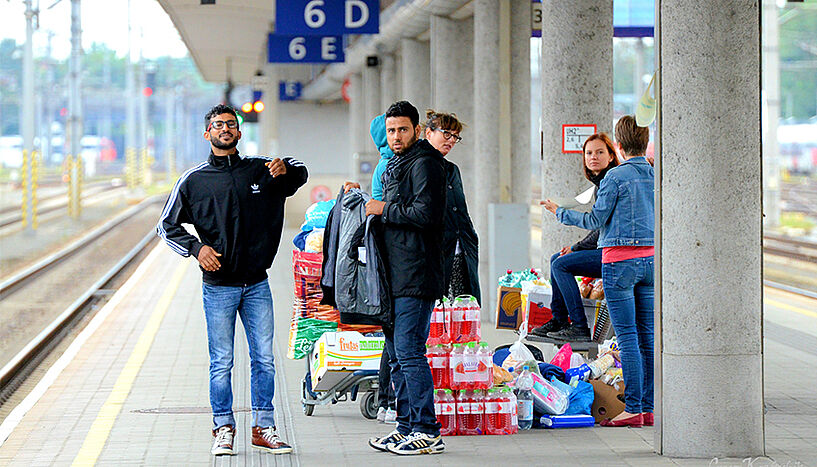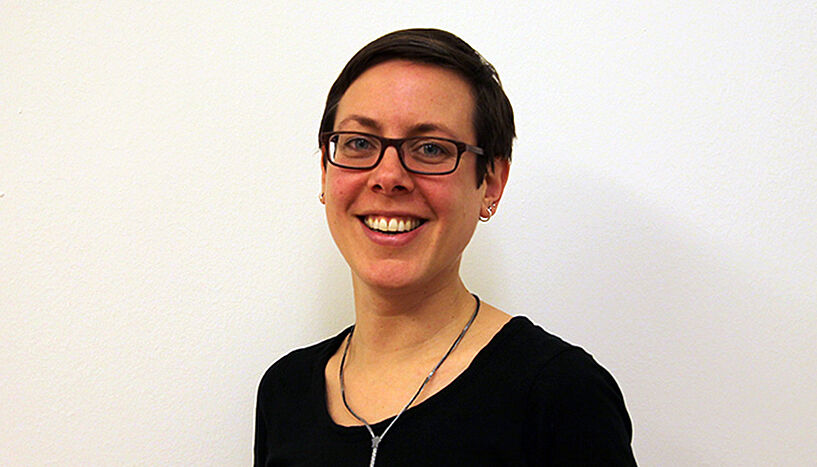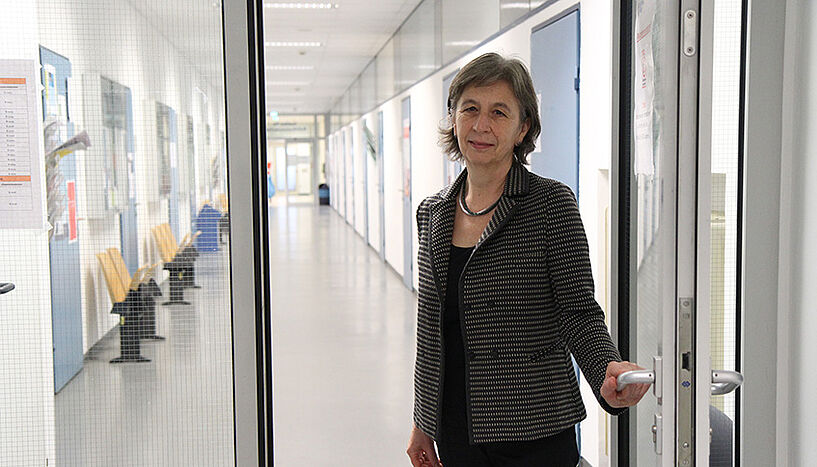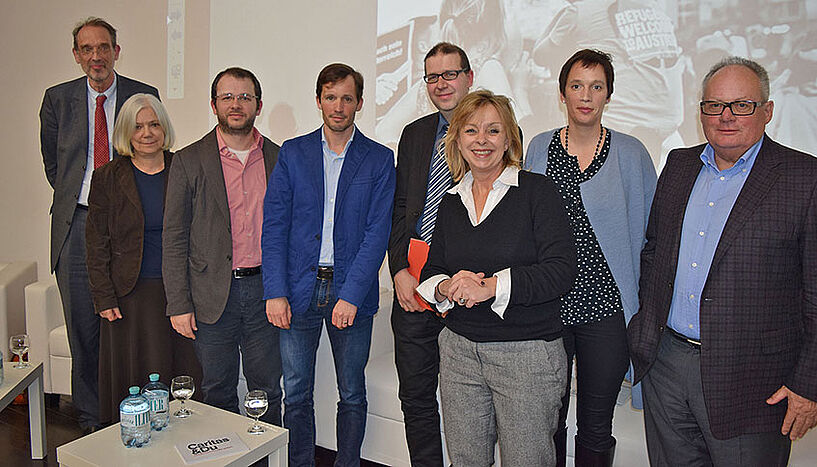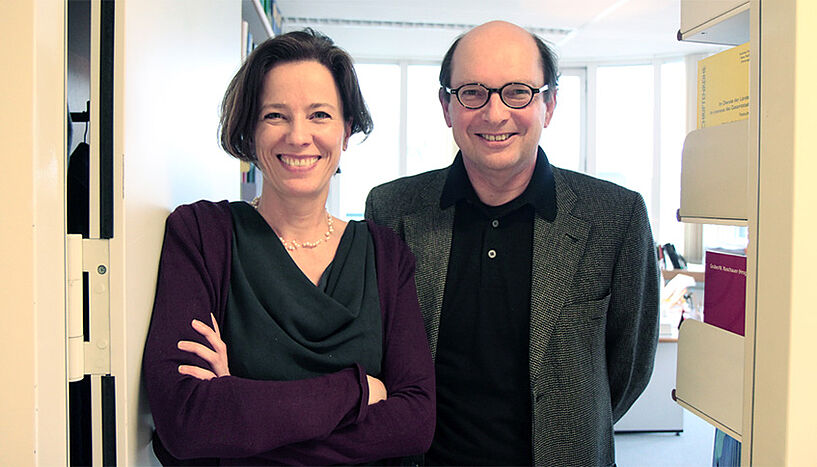Intermediaries under difficult circumstances
| 13. Juli 2016Only recently, charities in Austria have started to hire staff with a migration background. These workers are often caught between clients' needs and organisational interests, between new opportunities and constraints. Political scientist Sara de Jong, Marie Curie Fellow at the University of Vienna, analysed their ambivalent positions.
Staff with a migration background is increasingly seen as a resource. Not only since the recent refugee movement, the need for staff's expanded language skills and intercultural competences has come to the fore – in Austria as well as other European countries. Under the label "diversity management", ethnic minority workers are employed to enrich the workforce of companies, public institutions and non-governmental organisations (NGOs).
Ethnic minority workers in NGOs
However, they may find themselves in conflicting situations. In her EU-funded Marie Curie project, Sara de Jong analysed the specific positions of ethnic minority members of staff in large Austrian, Dutch and British charitable NGOs. The political scientist of the Department of Development Studies at the University of Vienna highlights the often contradictory outcomes and demands they frequently are confronted with.
In these NGOs, many migrant and ethnic minority workers are employed to assist other migrants and asylum seekers taking part in integration programmes or dealing with everyday life challenges in a foreign country. When the number of those seeking protection in the EU rose recently, refugees were engaged as translators, language coaches or counsellors in considerable numbers.
Between empowerment and marginalisation
Thereby, refugees can raise their chances to find a niche in society. "Among their group, they are in a very privileged position", explains Sara de Jong. "In the labour market, they are generally the most marginalised. Besides, they may have been out of work for a long time or suffer from traumas. If refugees find a job at all, they are likely to end up in menial work such as cleaning."
While working for an NGO can empower refugees, the same job may prove to be a dead end from a long-term perspective. "If you allow people to work with refugees – because they are refugees themselves – will you also allow them later to work with Austrian elderly or young people? In the current practice of employment, refugees are constructed as different from other workers."
Loss of qualifications
Such a making of differences is continued with respect to qualifications. "Most of my interviewees do not have a degree in social work but went to university. Their skills, yet, are not recognised by the state. The only competences that are rewarded are their language skills and perceived cultural competences." As a result, they are not regarded as "proper" professionals in many cases.
While managing positions are occupied predominantly by ethnic majority men, these workers join the lower ranks of mostly female white workers. The continuation of social inequalities within organisations does not solely apply to refugees but to other workers with a migrant background as well.
A better understanding
Charities, though, could gain from migrant staff, more than they already do – from their qualifications, e.g. as lawyers, linguists or social scientists as much as from their experiences. "Many of the people I interviewed migrated or fled a country. They entered a totally different society and were often marginalised and discriminated against. They do not necessarily share their client's ethnic and social background, but the workers feel they are in a position to generally understand migrants' particular situations."
"Cultural brokers" in constraint settings
In everyday work practice, this is a chance for the organisation as much as a source of conflict. Ethnic minority workers often fulfil the role of intermediaries: While they are on the one hand required to meet organisational targets such as helping asylum seekers integrate into society, they feel responsible to be supportive in difficult situations on the other – a task that is not always easy.
"We need to have a more sophisticated understanding of NGOs than just seeing them as good moral actors", says the political scientist. "Many NGOs are dependent on state funding, which means they have to comply with national migration policies to some extent. Staff therefore has a limited space for manoeuvring and also, NGOs are part of the efforts to control migrants: Part of the workers' job is, e.g. to tell migrants what proper behaviour in Austria is or how one should integrate – disregarding the clients' actual needs."
uni:view: What is your answer to our Semester Question "How does migration change Europe?"
Sara de Jong: Migration has always changed Europe. At the moment, everybody discusses migration and thinks of refugees – but I am also a migrant from the Netherlands, sent here by the Marie Curie programme. The current debate is to some extent dangerous: The media pictures the refugee movement as a 'crisis' and draws a link between migration and the growth of the FPÖ instead of the fact that SPÖ and ÖVP failed to provide refugees coming to Austria with proper facilities. Moreover, we often hear sentences like "Our capacities are exhausted!" – no one would say the same thing about (Austrian) elderly people, for example, and introduce quotas for this group. Through the discourse of capacities, we forget that we are talking about living people.
Helping too much is not helpful
Furthermore, charities are increasingly forced to work effectively, to guide more clients in less time. Within this setting, workers do not do themselves a favour if they involve too much, e.g. by taking extra time for a client when necessary or by even giving out their personal phone numbers. "That is valued as unprofessional and puts workers in a really tricky position. They are already not assessed as proper professionals", says Sara de Jong.
Her work therefore not only focuses on the scientific community but also on NGO representatives, with whom she discusses her research results. "Too little attention is paid to the use of the workers' skills for the organisation as a whole. However, they would need a position that allows them to speak up and initiate change." (jr)
Dr. Sara de Jong, MA is currently finishing her Marie Curie project "Employing the Cultural Broker in the Governance of Migration and Integration" (BrokerInG), funded in the 7th Framework Programme of the EU between March 2014 and June 2016. Her research is based at the Department of Development Studies at the University of Vienna.
Semester Question 2016: How does migration change Europe?

